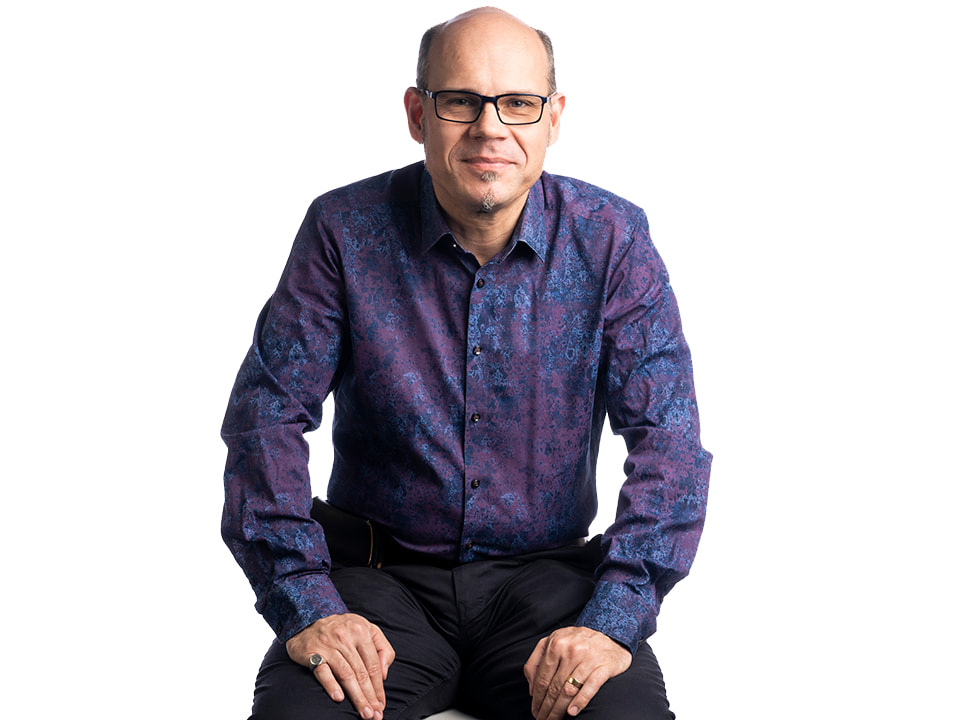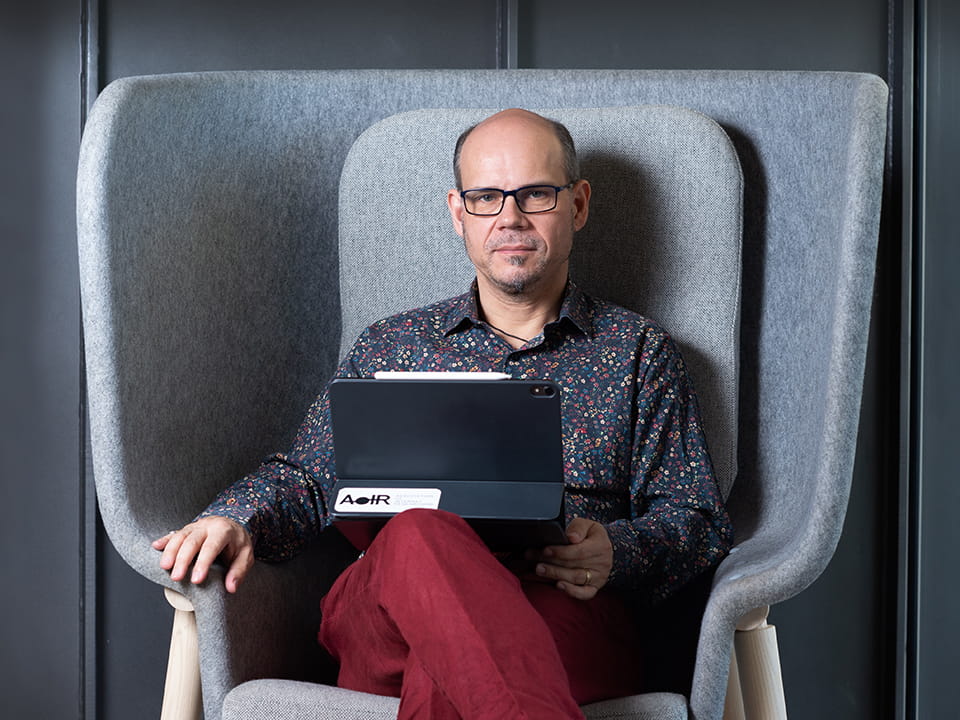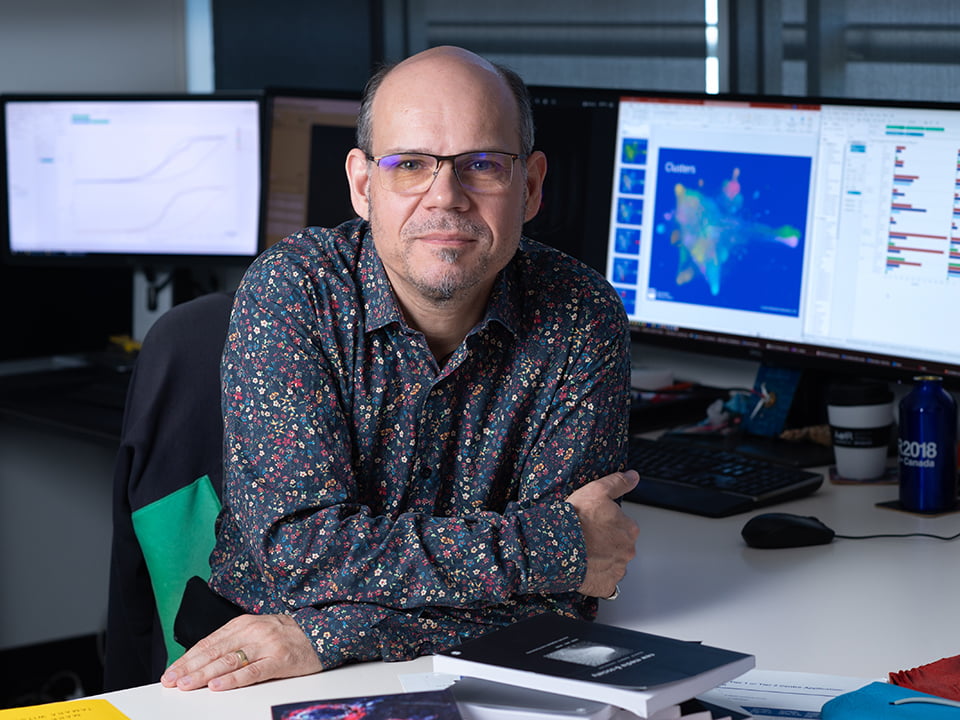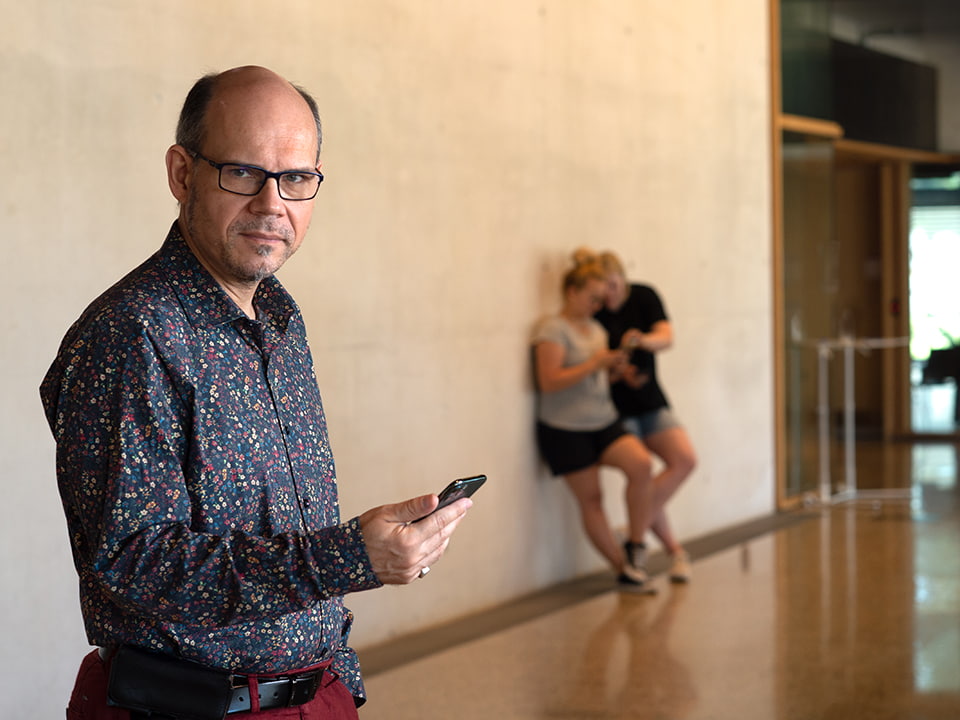'Public debate is increasingly polarised and dysfunctional, which presents a critical danger to the democratic processes. My research investigates how media and political systems around the world cope.'


The spark
'Living in Europe and Australia, I’ve experienced a variety of political and media systems, and seen how they deal with ideological difference and polarisation. But we’re still lacking a full understanding of how this plays out in an environment that is now dominated by cross-national communication platforms, including social media.'
Research aim
'There is a great opportunity in media and communication studies to develop groundbreaking new research approaches that draw on the new computational methods now available to us. I’ve been at the forefront of this work in Australia, and it’s very rewarding.
'In Australia and elsewhere, public debate appears to be increasingly polarised and dysfunctional, and this presents a critical danger to democratic processes. My research investigates the drivers and dynamics of such polarisation, to determine how different media and political systems around the world cope.'

Real-world implications
'Excessive polarisation can increase divisions in society, produce political gridlock, and ultimately threaten democracy itself – we only need to look to the United States to see how severely this can affect a country. We must better understand the drivers of such polarisation in order to protect Australia and other countries from this fate.'
The challenge
'By understanding the dynamics of polarisation in different national contexts, we can develop better approaches to managing its negative implications and protect society from disruption and harm. I can’t think of a more important challenge to address. Political science still hasn’t managed to fully connect with media, communication, and Internet studies; there are many simplistic assumptions about the role of digital and social media, in particular. My research builds on a career-long commitment to the study of such media, and introduces these insights to the study of polarisation.'

News
Bruns awarded Australian Laureate Fellowship
A project examining the impact of polarisation across online environments has lead to Professor Axel Bruns being awarded a prestigious Australian Laureate Fellowship.
Announced on July 7th by Federal Education Minister Alan Tudge, Professor Bruns from QUT’s Digital Media Research Centre will receive $3,518,080 from the Australian Research Council (ARC) for his project Determining the Drivers and Dynamics of Partisanship and Polarisation in Online Public Debate.

Teaching
'Methodological innovation is a key aspect of my work. I’ve taught my social media analytics methods at workshops and masterclasses around the world, and many of my doctoral students have gone on to become major methods innovators in their own right. This is crucial, as our field of research must keep up with the changing practices of social media platforms and their users.'
Key collaborators
'Collaboration is critical across all of my work. This includes collaboration with my staff and students, as part of my overall commitment to mentoring early-career researchers; collaboration with my colleagues across disciplines, in order to develop more powerful mixed-methods approaches to the study of complex real-world phenomena; and collaboration with partners at other domestic and international institutions, in order to transport our research findings into the world and benefit from the insights of others.'
- Algorithm Watch
- Global Journalism Innovation Lab
- Centre for Responsible Technology
- Australia Institute
- Queensland Fire and Emergency Services
- Alexander von Humboldt Institute for Internet and Society, Berlin
- National Library of Australia
- Public Interest Journalism Initiative
- Hans Bredow Institute for Media Research, Hamburg
- Institute for Communications Science and Media Research, Munich
- Centre for Advanced Internet Studies, Bochum
- National Centre for Research Methods, UK
- Department of Media and Communication, University of Oslo
- ARC Centre of Excellence for Automated Decision-Making and Society
- ARC Centre of Excellence for Creative Industries and Innovation
- Smart Services Cooperative Research Centre
Key publications
Bruns, A. (2019). Are Filter Bubbles Real? Polity. https://politybooks.com/bookdetail/?isbn=9781509536443
Bruns, A., Moon, B., Münch, F., & Sadkowsky, T. (2017). The Australian Twittersphere in 2016: Mapping the Follower/Followee Network. Social Media + Society, 3(4), 1–15. https://doi.org/10.1177/2056305117748162
Bruns, A., Harrington, S., & Hurcombe, E. (2020). ‘Corona? 5G? Or Both?’: The Dynamics of COVID-19/5G Conspiracy Theories on Facebook. Media International Australia, 177, 12–29. https://doi.org/10.1177/1329878X20946113
Digital Media Research Centre
The DMRC is a leader in media and communication research, receiving the highest possible national rankings.
Our programs investigate the digital transformation of media industries, the challenges of digital inclusion and governance, the growing role of AI and automation in the information environment, and the role of social media in public communication.



